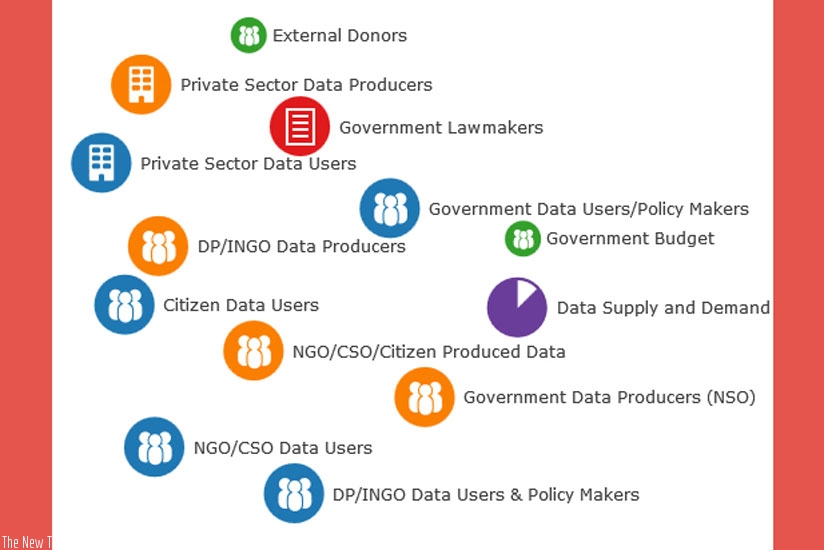Next month, the UN will convene a summit for the adoption of the post-2015 development agenda, and kickstart and officially start the post-2015 Sustainable Development Goals (SDGs) countdown. The SDGs are a proposed set of targets relating to future international development and will replace the Millennium Development Goals (MDGs) once they expire at the end of 2015.


Next month, the UN will convene a summit for the adoption of the post-2015 development agenda, and kickstart and officially start the post-2015 Sustainable Development Goals (SDGs) countdown. The SDGs are a proposed set of targets relating to future international development and will replace the Millennium Development Goals (MDGs) once they expire at the end of 2015.
It is important to note that Rwanda achieved most it MDGs before the set deadline. The MDGs era has seen millions of Rwandan families moved out of poverty, millions of children are in schools and the number of people with access to healthcare and clean drinking water has remarkably increased.
So, what can we expect from SDGs and people aware of these targets? The answer is yes and no. Recently, I had a chance to attend and present a paper at the Cartagena Data Festival in Colombia, South America. The three-day event mainly focused on ways of mainstreaming data in development. The event was a great opportunity for me to deeply understand SDGs and how new technologies can be used to produce and share data for SDGs monitoring.
When I returned home, I took time to think about what may work locally from the presentations and discussions at the conference. When I discussed my thoughts with some friends, I discovered that the majority didn’t know much about MDGs or SDGs, yet these are informed and well-educated people.
So, how can citizens be empowered to monitor what they do not know? Who should make sure citizens are aware of the set goals to be able to evaluate their development?
These questions can generate interesting responses. However, as a technologist, I am more interested in how new technologies can help in producing, sharing and evaluating data on development. Data are not just about measuring changes; they also facilitate and catalyse that change.
With today’s data revolution, this is important. Simply put, data revolution is an explosion in the volume of data, the speed with which data are produced, the number of producers of data, the dissemination of data, and the range of things on which there are data, coming from new technologies such as mobile phones and the Internet, and from other sources, such citizen-generated data and perceptions data.
The question is how we can drive the data revolution locally. It is important to note that before we talk about the data revolution, data should be freely and publicly available, as well as in open and machine readable formats.
Fortunately, the National Institute of Statistics of Rwanda (NISR) can avail microdata, metadata, indicator data and geodata as per standards and requirements. The question is whether we need to have other reliable, and not necessarily public sources, for data on national and international issues. Maybe yes as historically it is said that official data and statistics are as political as they are technical.
From acknowledged best practices and what has worked elsewhere, to have a vibrant data-driven system there are four general guiding principles, namely; access to public information, data-driven governance, public engagement and practical innovation.
Locally, we have made some progress… Government passed the access to information law in 2013 enabling the setting up initiatives, like sobanukirwa.rw. Data driven governance is enforced through home grown initiatives like "imihigo” and many others.
What still needs to be improved is public engagement whereby linkages outside government with civil society organisations, the private sector and the academia should be established or fostered.
The engagement should be between both the data supply side and the data demand side. Otherwise, we will end up in a scenario where a lot of efforts and resources are invested in producing information that is not relevant to our needs.
Therefore, we need to leverage and built on available data to enhance innovation.
From my experience working with young innovators, a big number suffer from lacking numbers and data to predict national trends and consumption behaviours. Hence they end up developing products that won’t survive or have a hard time to attract investors or scale.
As public engagement materialises, innovators will increasingly seek for data to decide on where to venture. Instead of running hackathons and events for development just to spend allocated budgets or create hype which does not help entrepreneurs.
The focus should be on availing application programme interfaces (APIs) and datasets for innovators, and building synergies with all parties to create opportunities for innovations that benefit both public and private sectors.
Despite the aftermaths of the 1994 Tutsis Genocide, Rwanda has achieved a lot as a country. As we join the entire world on the SDGs journey, and continuously adopt ICTs as cross-cutting enablers, the data revolution should be contextualised to help monitor and accelerate the national development agenda.
The writer is an Open Government Fellow for Rwanda.
mikaclau@gmail.com


